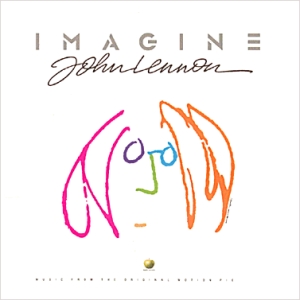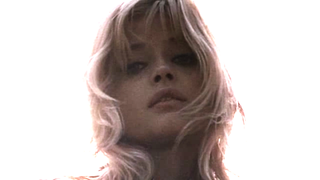
The Cultural Revolution, formally known as the Great Proletarian Cultural Revolution, was a sociopolitical movement in the People's Republic of China (PRC) launched by Mao Zedong in 1966, and lasting until his death in 1976. Its stated goal was to preserve Chinese communism by purging remnants of capitalist and traditional elements from Chinese society. The Revolution marked the effective commanding return of Mao –who was still the Chairman of the Chinese Communist Party (CCP)– to the centre of power, after a period of self-abstention and ceding to less radical leadership in the aftermath of the Mao-led Great Leap Forward debacle and the Great Chinese Famine (1959–1961). The Revolution failed to achieve its main goals.

Abbot Howard "Abbie" Hoffman was an American political and social activist who co-founded the Youth International Party ("Yippies") and was a member of the Chicago Seven. He was also a leading proponent of the Flower Power movement.

On October 2, 1968 in the Tlatelolco section of Mexico City, the Mexican Armed Forces opened fire on a group of unarmed civilians in the Plaza de las Tres Culturas who were protesting the upcoming 1968 Summer Olympics. The Mexican government and media claimed that the Armed Forces had been provoked by protesters shooting at them, but government documents made public since 2000 suggest that snipers had been employed by the government.

"Revolution" is a song by the English rock band the Beatles, written by John Lennon and credited to the Lennon–McCartney partnership. Three versions of the song were recorded and released in 1968, all during sessions for the Beatles' self-titled double album, also known as "the White Album": a slow, bluesy arrangement that would make the final cut for the LP; an abstract sound collage that originated as the latter part of "Revolution 1" and appears on the same album; and the faster, hard rock version similar to "Revolution 1", released as the B-side of "Hey Jude". Although the single version was issued first, it was recorded several weeks after "Revolution 1", as a remake specifically intended for release as a single. In addition, a promotional video for the song was shot, using the musical backing track from the hard rock version, along with live-sung lyrics that more closely resemble the "Revolution 1" version.
Beginning in the middle of the decade due to the start of the cultural revolution and the abolition of the Hays Code, films became increasingly experimental and daring and were taking shape of what was to define the 1970s.

Beginning in May 1968, a period of civil unrest occurred throughout France, lasting some seven weeks and punctuated by demonstrations, general strikes, and the occupation of universities and factories. At the height of events, which have since become known as May 68, the economy of France came to a halt. The protests reached such a point that political leaders feared civil war or revolution; the national government briefly ceased to function after President Charles de Gaulle secretly fled France to West Germany on the 29th. The protests are sometimes linked to similar movements that occurred around the same time worldwide and inspired a generation of protest art in the form of songs, imaginative graffiti, posters, and slogans.

Helga Ursula "Uschi" Glas, sometimes credited as Ursula Glas, is a German actress in film, television and on stage, and a singer.

The Matrix is an American media franchise consisting of four feature films, beginning with The Matrix (1999) and continuing with three sequels, The Matrix Reloaded, The Matrix Revolutions, and The Matrix Resurrections (2021). The first three films were written and directed by The Wachowskis and produced by Joel Silver. The screenplay for the fourth film was written by David Mitchell and Aleksandar Hemon, was directed by Lana Wachowski, and was produced by Grant Hill, James McTeigue, and Lana Wachowski. The franchise is owned by Warner Bros., which distributed the films along with Village Roadshow Pictures. The latter, along with Silver Pictures, are the two production companies that worked on the first three films.

Tetsurō Tamba was a Japanese actor with a career spanning five decades. He is best known in the West for his role in the 1967 James Bond film You Only Live Twice as Tiger Tanaka.
A revolution is a drastic political change that usually occurs relatively quickly. For revolutions which affect society, culture, and technology more than political systems, see social revolution.

Red Guards were a mass student-led paramilitary social movement mobilized by Chairman Mao Zedong in 1966 until their abolishment in 1968, during the first phase of the Cultural Revolution, which he had instituted. According to a Red Guard leader, the movement's aims were as follows:
Chairman Mao has defined our future as an armed revolutionary youth organization.... So if Chairman Mao is our Red-Commander-in-Chief and we are his Red Guards, who can stop us? First we will make China Maoist from inside out and then we will help the working people of other countries make the world red...and then the whole universe.

Mischa Auer (born Mikhail Semyonovich Unkovsky was a Russian-born American actor who moved to Hollywood in the late 1920s. He first appeared in film in 1928. Auer had a long career playing in many of the era's best known films. He was nominated for the Academy Award for Best Supporting Actor in 1936 for his performance in the screwball comedy My Man Godfrey, which led to further zany comedy roles. He later moved into television and acted in films again in France and Italy well into the 1960s.
Tomorrow were an English musical group active in the 1960s, whose music touched on psychedelic rock, pop and freakbeat. Despite critical acclaim and support from DJ John Peel, who featured them on his "Perfumed Garden" radio show, the band was not a great success in commercial terms. They were among the first psychedelic bands in England, along with Pink Floyd and Soft Machine. Tomorrow recorded the first ever John Peel show session on BBC Radio 1 on 21 September 1967. The band included Steve Howe on guitars, who would later join the British prog band Yes.

Imagine: John Lennon is a soundtrack album of popular music compiled for the 1988 documentary film Imagine: John Lennon from songs written or co-written by John Lennon. Originally released that year as a double album, it now remains available on one CD.

Fionnghuala Manon "Fionnula" Flanagan is an Irish stage, television, and film actress. For her contributions to the entertainment industry, she was given the IFTA Lifetime Achievement Award in 2012. Flanagan is known for her roles in the films James Joyce's Women (1985) and The Others (2001), for the latter of which she won a Saturn Award. She was honored with the Maureen O'Hara Award at the Kerry Film Festival in 2011, the award is offered to women who have excelled in their chosen field in film. She was also nominated for two Primetime Emmy Awards and two Tony Awards during her acting career. In 2020, she was listed at #23 on The Irish Times list of Ireland's greatest film actors.

Ewa Birgitta Aulin is a Swedish former actress who appeared in a number of Italian and some American films in the 1960s and 1970s. She is remembered for playing the title character in the cult film Candy where she appeared with John Huston, Ringo Starr, Walter Matthau, James Coburn, Richard Burton and Marlon Brando. She is known to horror film fans for starring in Death Smiles on a Murderer, Death Laid an Egg, and Ceremonia Sangrienta.

Giancarlo Giuseppe Alessandro Esposito is an American actor. He is best known for portraying Gus Fring in the AMC crime drama series Breaking Bad, from 2009 to 2011, as well as in its prequel series Better Call Saul, from 2017 to 2022. For this role, he won the Critics' Choice Television Award for Best Supporting Actor in a Drama Series and earned three nominations for the Primetime Emmy Award for Outstanding Supporting Actor in a Drama Series.

A total solar eclipse occurred on September 22, 1968. A solar eclipse occurs when the Moon passes between Earth and the Sun, thereby totally or partly obscuring the image of the Sun for a viewer on Earth. A total solar eclipse occurs when the Moon's apparent diameter is larger than the Sun's, blocking all direct sunlight, turning day into darkness. Totality occurs in a narrow path across Earth's surface, with the partial solar eclipse visible over a surrounding region thousands of kilometres wide. Totality was visible from the Soviet Union and Xinjiang in Northwestern China.
R-Evolution is a 2013 music documentary featuring 19 live performances, TV performances and music videos by American rock band the Doors. The compilation features TV performances not previously released as well as original music videos from the 1960s, the 1980s and the 1990s. All archive footage was digitally restored and the sound was remixed and mastered for 5.1 by Bruce Botnick. It was released by Eagle Rock on November 25, 2013.















